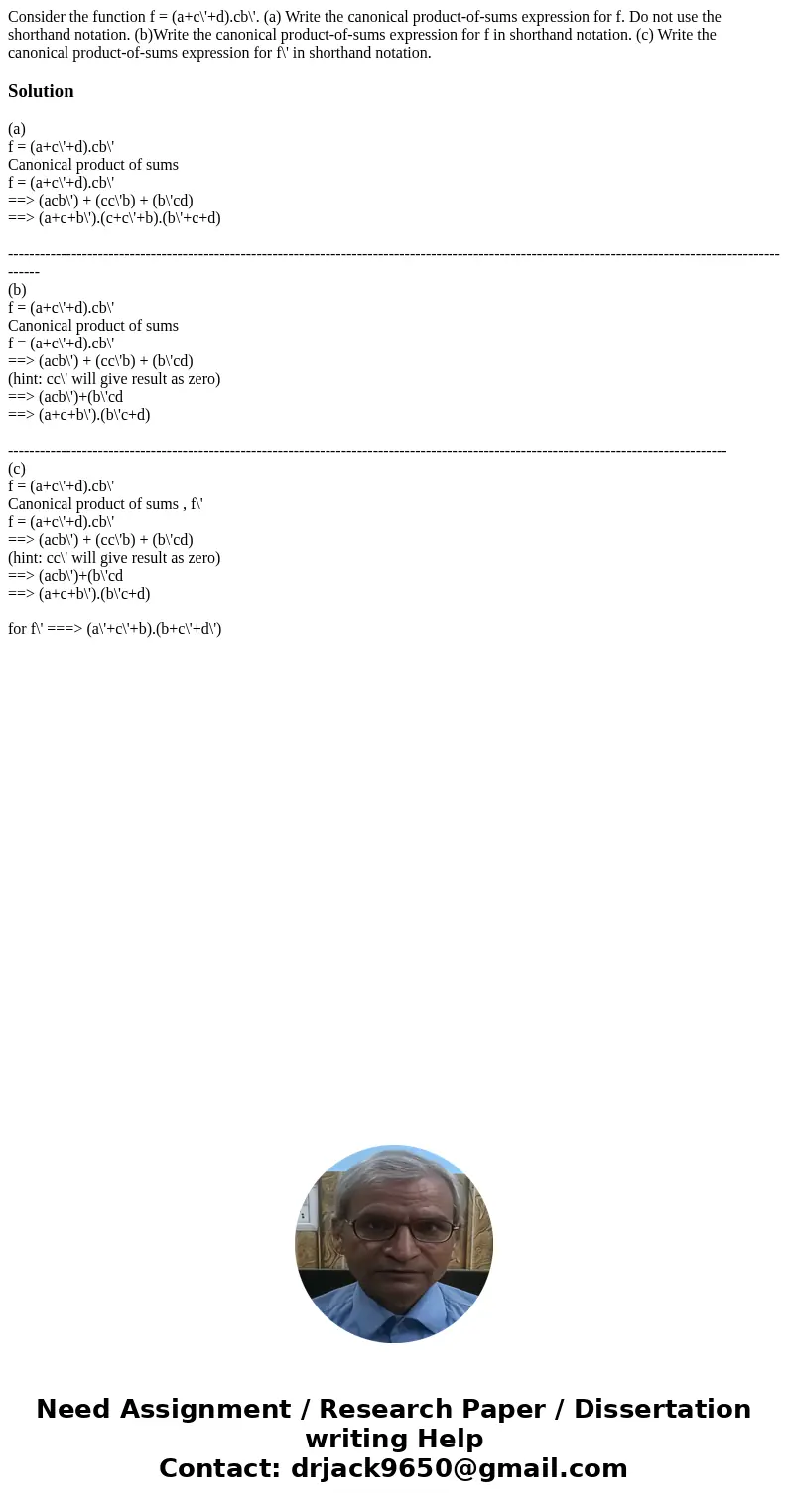Consider the function f acdcb a Write the canonical product
Consider the function f = (a+c\'+d).cb\'. (a) Write the canonical product-of-sums expression for f. Do not use the shorthand notation. (b)Write the canonical product-of-sums expression for f in shorthand notation. (c) Write the canonical product-of-sums expression for f\' in shorthand notation.
Solution
(a)
f = (a+c\'+d).cb\'
Canonical product of sums
f = (a+c\'+d).cb\'
==> (acb\') + (cc\'b) + (b\'cd)
==> (a+c+b\').(c+c\'+b).(b\'+c+d)
--------------------------------------------------------------------------------------------------------------------------------------------------------
(b)
f = (a+c\'+d).cb\'
Canonical product of sums
f = (a+c\'+d).cb\'
==> (acb\') + (cc\'b) + (b\'cd)
(hint: cc\' will give result as zero)
==> (acb\')+(b\'cd
==> (a+c+b\').(b\'c+d)
----------------------------------------------------------------------------------------------------------------------------------------
(c)
f = (a+c\'+d).cb\'
Canonical product of sums , f\'
f = (a+c\'+d).cb\'
==> (acb\') + (cc\'b) + (b\'cd)
(hint: cc\' will give result as zero)
==> (acb\')+(b\'cd
==> (a+c+b\').(b\'c+d)
for f\' ===> (a\'+c\'+b).(b+c\'+d\')

 Homework Sourse
Homework Sourse